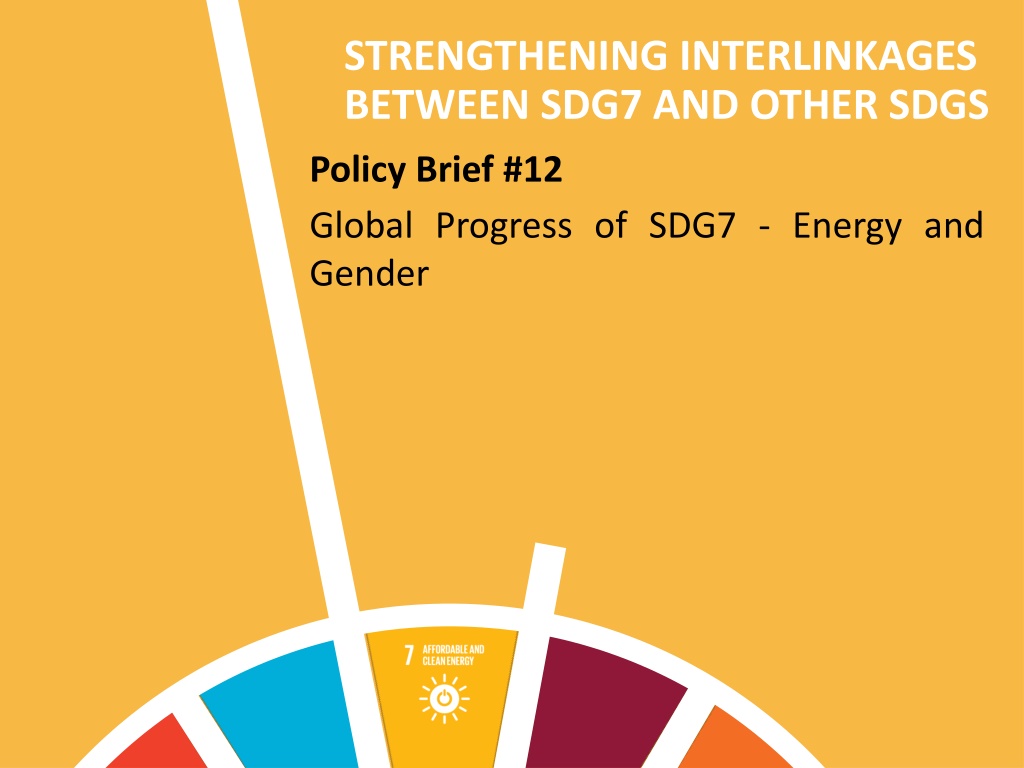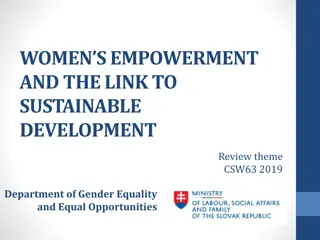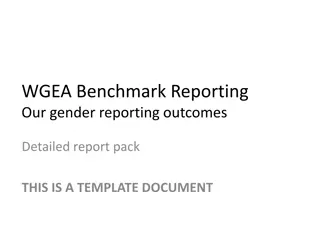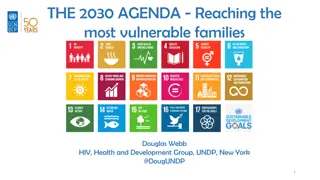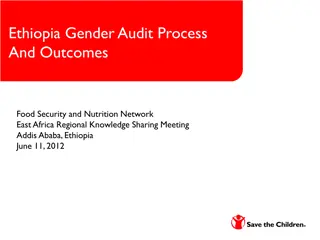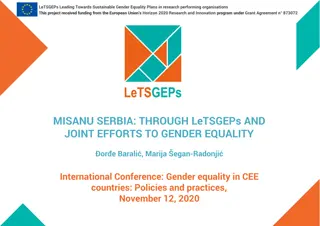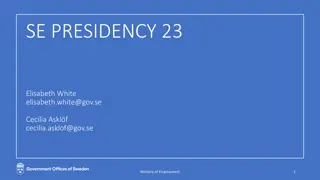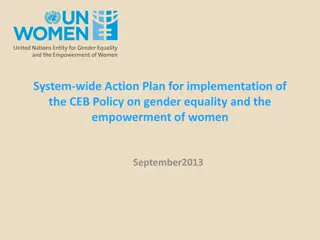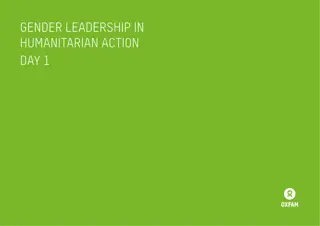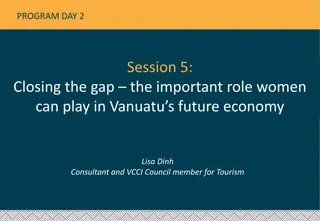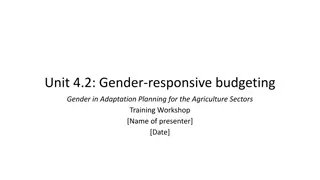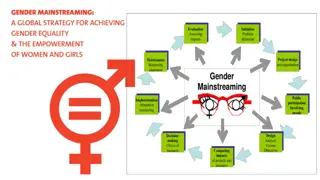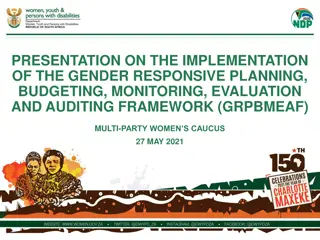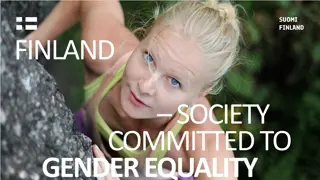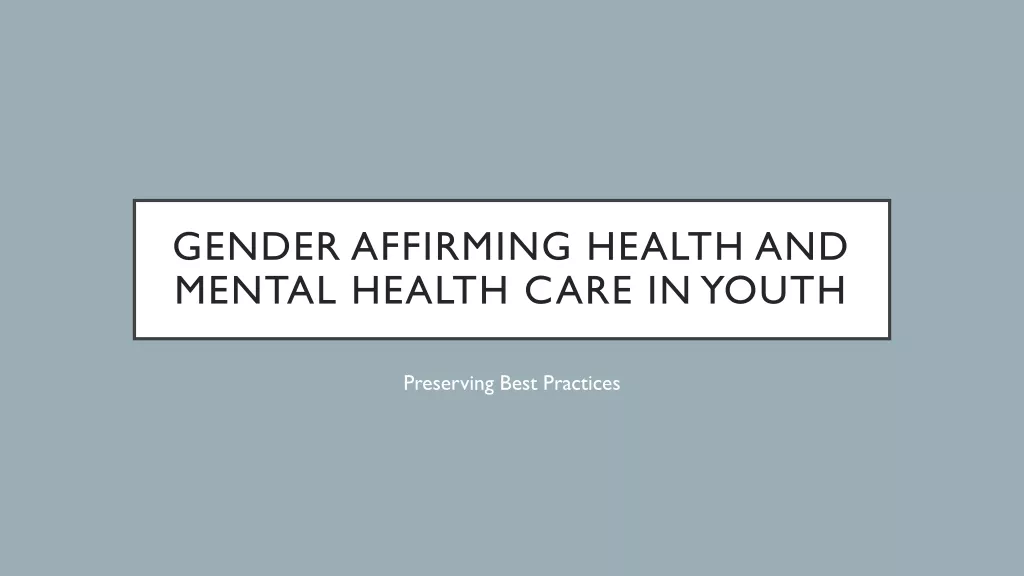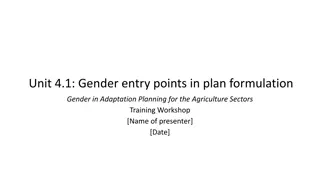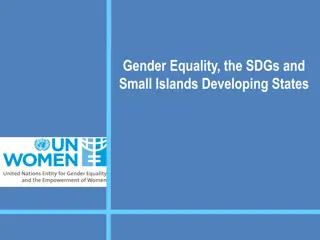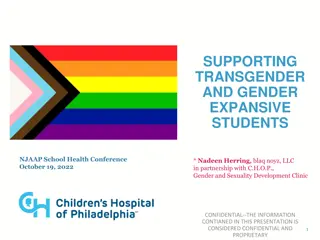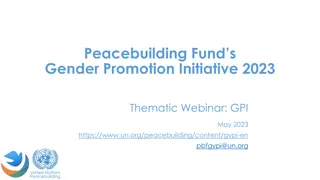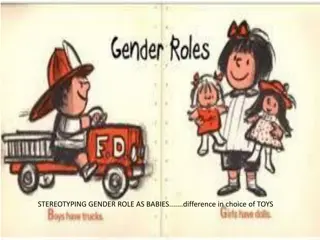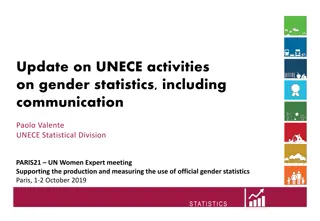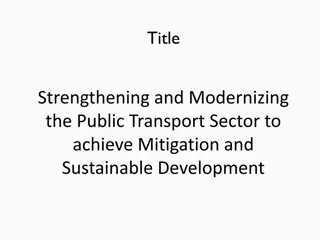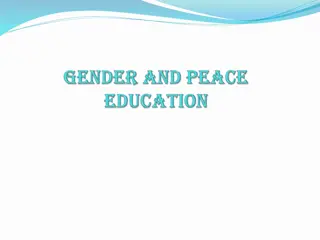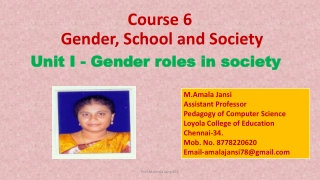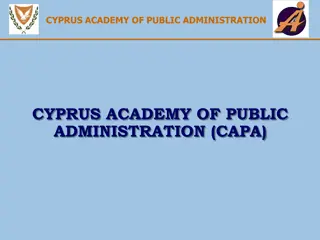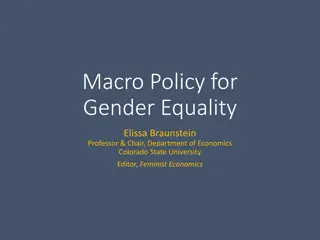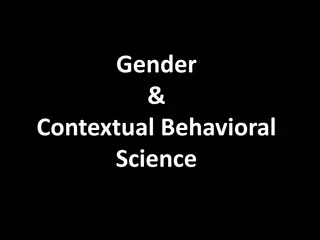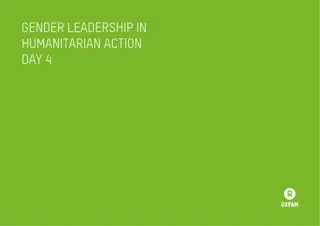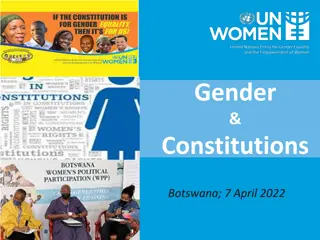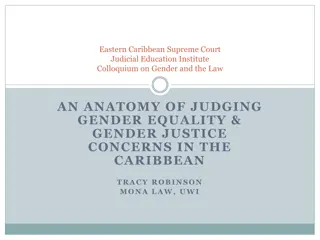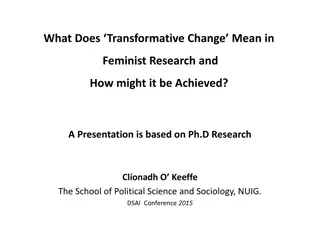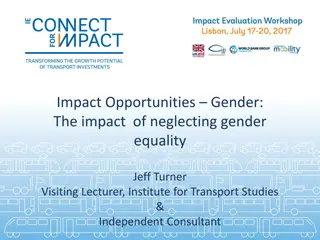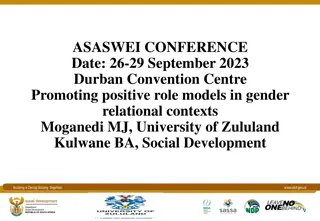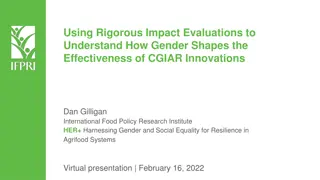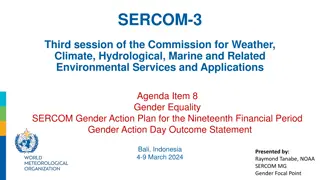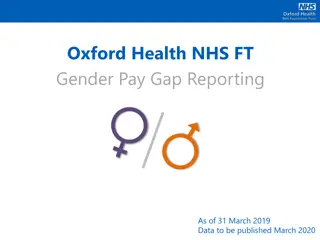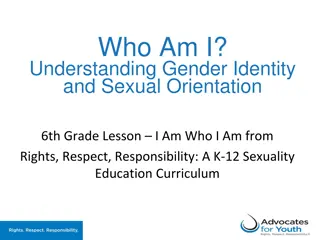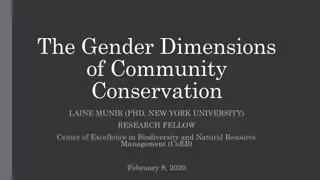Strengthening Interlinkages Between SDG7 and Gender Equality for Sustainable Development
Over 1 billion people lack access to electricity, while almost 3 billion lack clean cooking facilities, disproportionately affecting women. Household air pollution causes millions of deaths yearly, mostly among women and children. Priority actions include integrating gender into all SDGs, empowering women in the energy sector, and promoting clean cooking technologies. Collaboration between ENERGIA, World Bank Group, UN Women, SEforAll, and IEA is driving progress in these critical areas.
Download Presentation

Please find below an Image/Link to download the presentation.
The content on the website is provided AS IS for your information and personal use only. It may not be sold, licensed, or shared on other websites without obtaining consent from the author. Download presentation by click this link. If you encounter any issues during the download, it is possible that the publisher has removed the file from their server.
E N D
Presentation Transcript
STRENGTHENING INTERLINKAGES BETWEEN SDG7 AND OTHER SDGS Policy Brief #12 Global Progress of SDG7 - Energy and Gender
POLICY BRIEF #12 Global Progress of SDG7 - Energy and Gender CURRENT STATUS 1 billion + lack access to electricity Close to 3 billion lack access to clean cooking Women bear the greatest burden of this energy poverty Household air pollution is responsible for about 2.8 million deaths every year, mostly among women and children Under current policies and trends, 2.3 billion people will still lack access to clean cooking facilities in 2030. A number of actors have started working on the intersection of gender, energy and sustainable development, and in advancing gender equality, social inclusion, and women s empowerment in the energy sector. Developed by ENERGIA, World Bank Group/ESMAP and UN Women In collaboration with SEforAll and IEA
POLICY BRIEF #12 Global Progress of SDG7 - Energy and Gender PRIORITY ACTIONS Integrate gender and energy actions within all SDGs, and establish gender- responsive global and national energy sector policies backed by evidence. Ensure equal participation of women in decision-making bodies in energy institutions Reduce barriers in energy industry for women, and increase their representation on national and global energy bodies Promote and invest more in clean cooking technologies and decentralised sustainable energy technologies that support gender equality and women s economic empowerment Empower women in the design, production and distribution of modern energy services Developed by ENERGIA, World Bank Group/ESMAP and UN Women In collaboration with SEforAll and IEA
POLICY BRIEF #12 Global Progress of SDG7 - Energy and Gender PRIORITY ACTIONS Establish financing schemes to support gender-specific programmes and women s access to capital. Raise efforts to promote women-centric business models and develop women s technical and business skills Support international and national energy and climate change programmes and mechanisms to integrate gender concerns in programming Develop gender-responsive policies, programmes and monitoring systems Ensure sex disaggregation and gender analysis of data to monitor SDG 7 Support international and national energy and climate change programmes and mechanisms to integrate gender concerns in programming Developed by ENERGIA, World Bank Group/ESMAP and UN Women In collaboration with SEforAll and IEA
